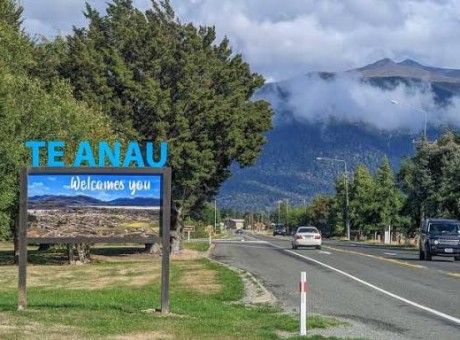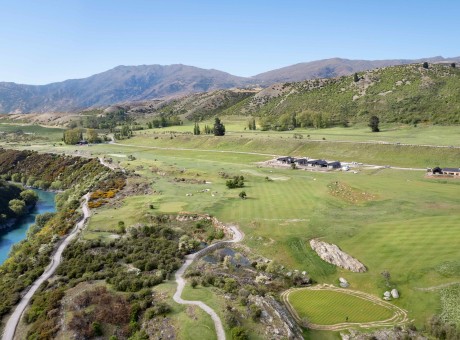Contact Energy fronts stormy Hāwea meeting
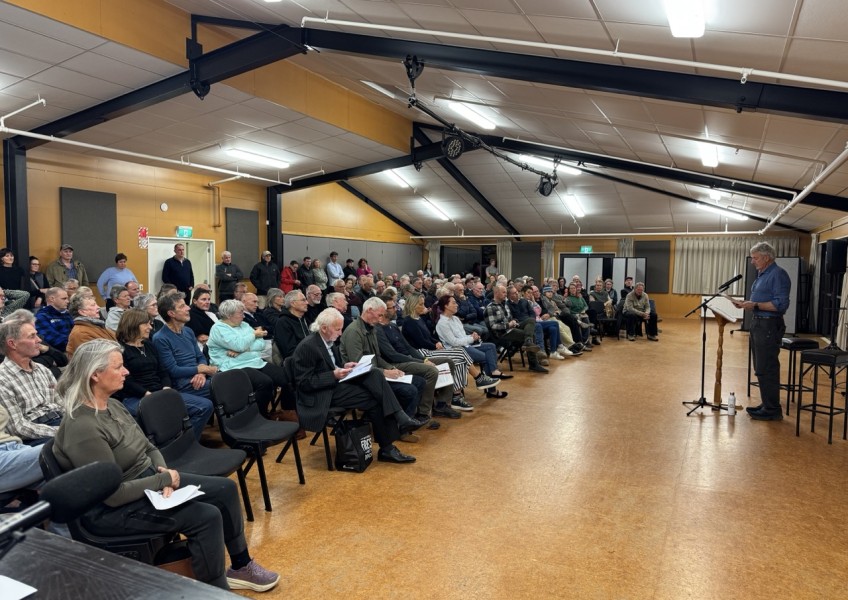
Senior managers from Contact Energy made a surprise appearance at a packed Hāwea community meeting on Thursday evening to defend their fast track application to lower the level of Lake Hāwea.
Local residents and farmers say the move would destroy their water supply, ruin the environment and produce wide scale job losses.
The meeting was organised by Erynne Fildes of Devon Dairies who told the meeting that her company would have to look at cutting 60 jobs if the Contact plan went ahead.
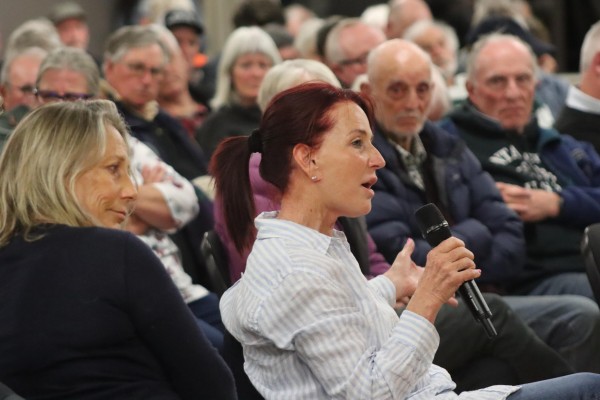
-
Erynne Fildes: “I employ 60 people – all of their jobs are at risk here.”
The local residents claim that Contact’s fast track application to lower the lake by six metres would “disconnect the lake from local aquifers” and effectively destroy the town’s water supply as well as threatening the lake edge environment and the wildlife that lives there.
QLDC councillors Niki Gladding and Cody Tucker both attended the meeting to add their support, as did Otago Regional Councillor Michael Laws who left the audience in no doubt as to how hard he thought it would be to fight and win against the Contact Energy proposal.
Niki Gladding told the meeting that it was unusual to find herself and so many others united against one single opponent. “I don’t think I’ve ever seen farmers, ORC, QLDC, me, Michael Laws – all on the same page. I’m looking forward to the battle.”
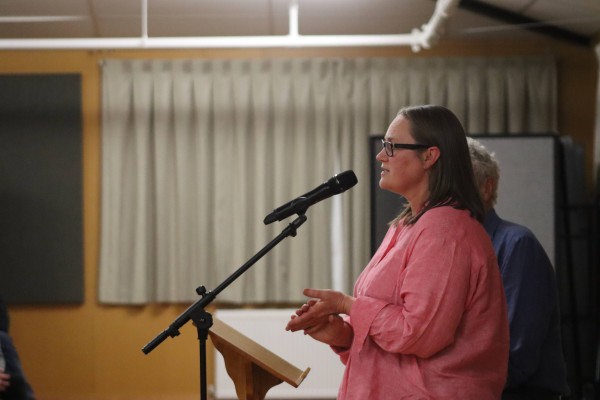
-
QLDC councillor Niki Gladding.
A specialist Resource Management lawyer, Rosie Hill from Todd and Walker, told the meeting that the Fast Track process was radically different to the RMA. She said the emphasis was on national benefit, not local effects on the environment. She also pointed out that Contact Energy was under no obligation to consult the community under Fast Track rules.
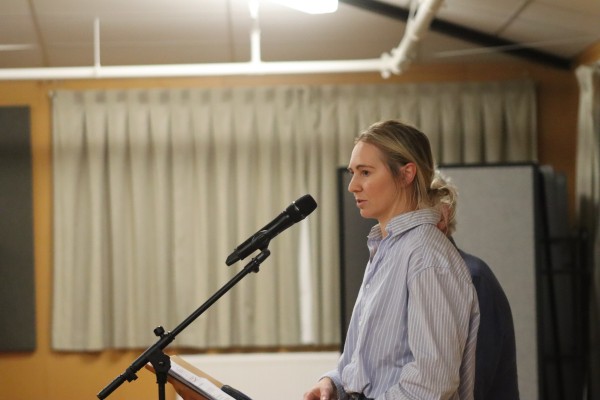
-
RMA lawyer Rosie Hill of Todd and Walker.
What the 300 people at the meeting did not know is that two of Contact Energy’s most senior managers had just arrived in Hāwea after a five hour drive from one of their Canterbury hydro schemes.
Previously the company had said the meeting was being held at too short notice for any Contact Energy representatives to attend. Something had obviously changed their mind.
Boyd Brinsdon, Head of Hydro Generation at Contact Energy, told the audience that lowering the level of Lake Hāwea was only going to happen “maybe once every three years” if and when Transpower declared a power emergency.
Mr Brinsdon’s argument found some level of support from the audience but Wānaka-Upper Clutha Community Board chair Simon Telfer took great exception to Contact Energy’s apparently contradictory stance of “we need to do this” but “it will rarely if ever happen.”
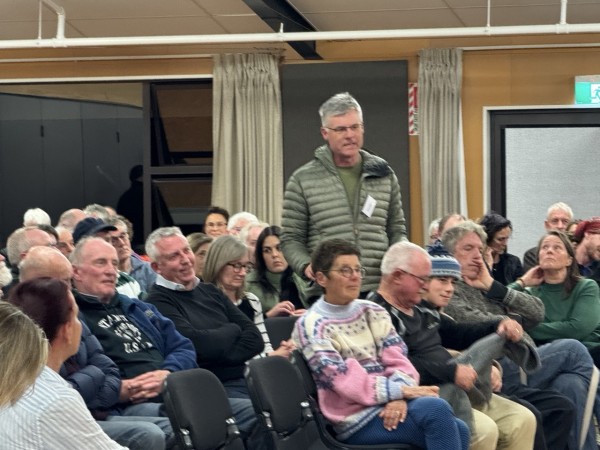
-
Simon Telfer - not buying Contact Energy’s argument that they will possibly never use the lower lake level provision - if granted.
Mr Telfer likened Contact’s position to a house insurance company arguing that the insurance was not necessary. With considerable passion he challenged Contact to explain why they would go to such great effort for something that was not needed or not going to be used.
The Contact Energy reply was both predictable and logical. That was the very nature of insurance - protecting against the unexpected.
And that’s where the meeting ended. The battle lines had been drawn but at least the people at the meeting knew that their concerns were - apparently - being taken seriously.





